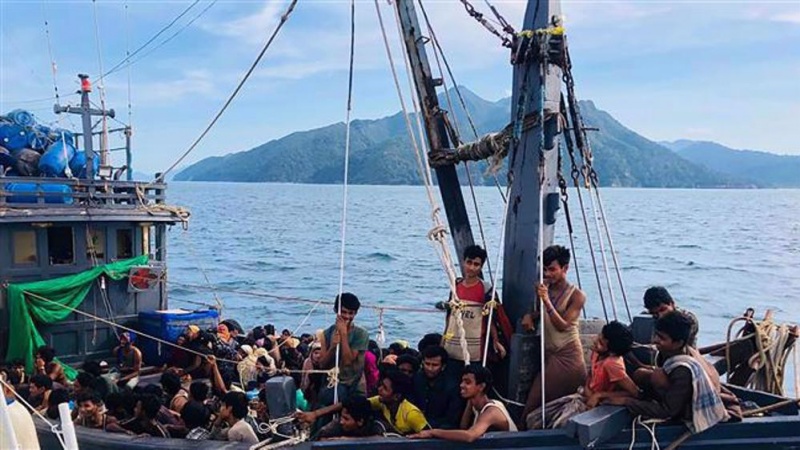Amnesty slams ‘barbaric’ caning sentences given to Rohingya Muslims by Malaysia
Amnesty International has called on Malaysia to withdraw the caning sentences recently handed down to a group of persecuted Rohingya refugees from Myanmar, saying the “barbaric” practice “amounts to torture.”
Last month, Malaysia’s local media said that a court on Langkawi Island had sentenced a group of Rohingya refugees to seven months in jail and caning for arriving in the country by boat without a valid permit.
In a statement on Tuesday, Amnesty confirmed that a boat carrying 202 Rohingya had made it to shore in northwest Malaysia in April, but at least 20 men from that group had now been sentenced to jail terms and caning.
Rachel Chhoa-Howard, a Malaysia researcher at Amnesty, urged Kuala Lumpur not to cane the refugees.
“Caning is a barbaric practice that amounts to torture, inhuman, and degrading treatment, and Malaysia must abolish the use of such a punishment,” she said. “These Rohingya have escaped Myanmar, but traded one nightmare for another.”
She said the caning would not deter Rohingya refugees from fleeing to Malaysia.
The UK-based rights group has called on the Malaysian government to release all other Rohingya refugees who were convicted of alleged immigration offenses, saying the convictions violated international law.
Malaysia has long been a common destination for Rohingya refugees seeking a better life after escaping a 2017 military crackdown in Myanmar and, more recently, refugee camps in Bangladesh. But Malaysia has also recently been turning away boats and detaining hundreds of Rohingya, saying it cannot take in more refugees because its economy is struggling as a result of the COVID-19 pandemic.
Since the start of 2020, up to 1,400 Rohingya people have been stranded in boats in the Andaman Sea and the Bay of Bengal after fleeing persecution in Myanmar and refugee camps in Bangladesh.
SS



